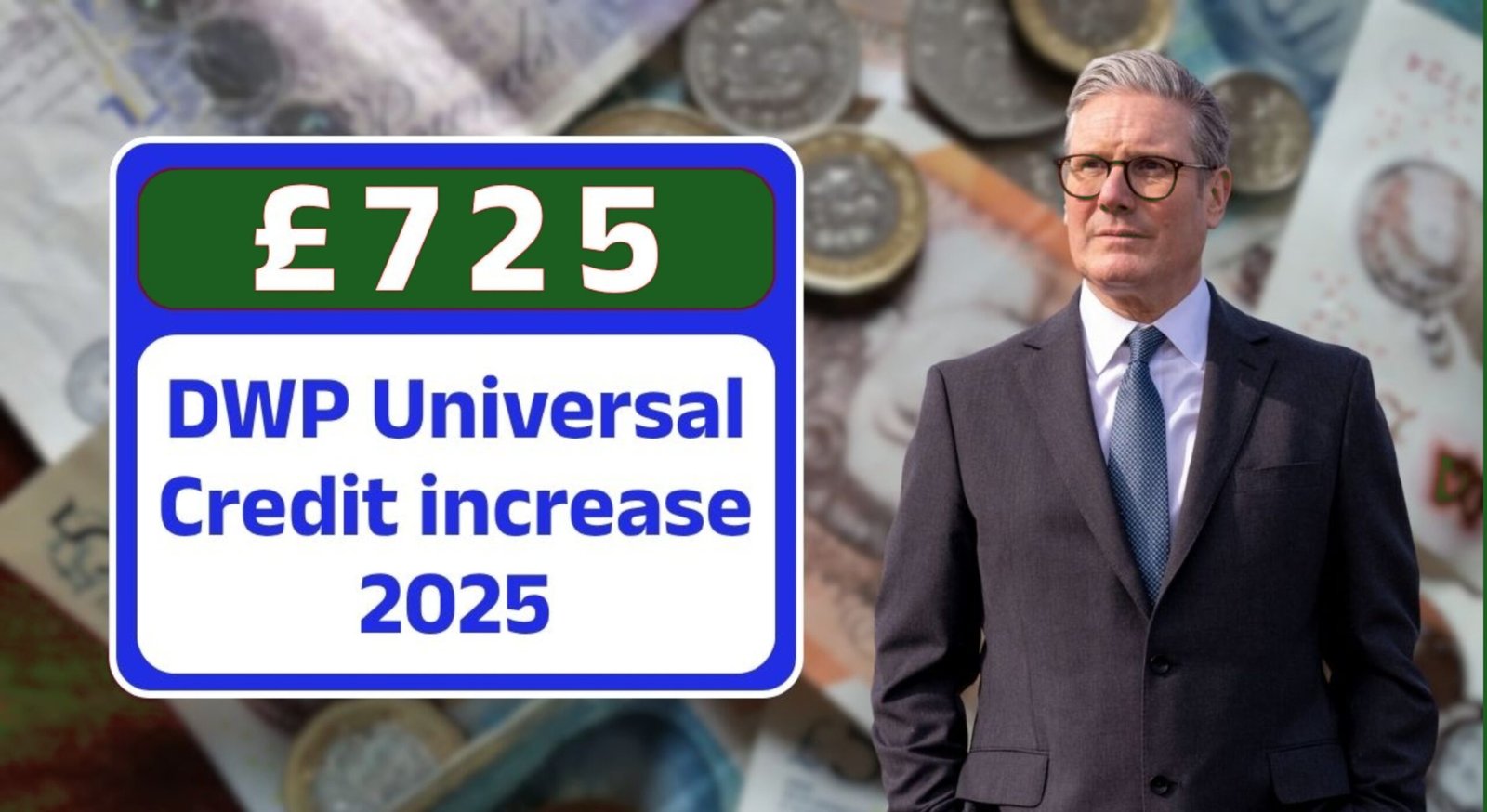The Department for Work and Pensions (DWP) has officially confirmed a £725 increase for Universal Credit claimants, marking one of the most significant uplifts in recent years. This announcement is being described as a landmark change, as millions of households across the UK rely on Universal Credit to cover essential living costs such as food, rent, and bills. The boost is not just about extra money; it reflects government recognition of the ongoing challenges faced by low-income families and individuals.
For many claimants, the additional £725 could mean greater stability in managing monthly budgets. Rising energy prices, food inflation, and general cost-of-living pressures have left households stretched to their limits. By providing a sizeable increase, the DWP is aiming to reduce financial strain and ensure that Universal Credit remains a vital support system for those in need.
Who will be eligible for the increase
Not every claimant will receive the exact same amount, but the £725 boost will apply broadly across Universal Credit recipients. Eligibility is expected to follow the standard rules for Universal Credit, meaning it covers working-age adults, single claimants, couples, and families with children who qualify for support. Importantly, the increase will not exclude those already receiving additional elements, such as housing support or child benefit add-ons.
For claimants already in receipt of Universal Credit, the payment should be automatically adjusted, without requiring a fresh application. New claimants applying after the announcement will also have the uplift factored into their assessments. This simplicity will help avoid confusion and ensure that vulnerable households are not left behind due to complex administrative processes.
Why this increase is considered a landmark
The DWP has made various changes to Universal Credit in recent years, but the £725 uplift stands out for both its size and timing. With cost-of-living concerns dominating headlines across the UK, the government needed to take bold action to reassure the public. This increase signals a more robust commitment to social security and acknowledges that existing payment levels have not kept pace with inflation.
For comparison, previous boosts have often been limited to smaller increments or temporary measures. By contrast, this uplift appears more sustainable and significant, offering claimants greater confidence about the future of their income support. It represents a shift in policy, where long-term support is prioritized over short-term fixes.
Impact on everyday households
The £725 boost will make a noticeable difference for millions of families and individuals who depend on Universal Credit to cover everyday essentials. For a single parent with children, the additional money could help bridge gaps in food budgets, childcare costs, or school expenses. For elderly claimants or disabled individuals on limited incomes, it may ease the burden of rising household bills.
Financial experts suggest that while £725 may not eliminate all struggles, it could be a turning point for many households living month-to-month. Having more breathing room in the budget allows people to plan ahead rather than constantly worrying about whether they can make ends meet. This stability also benefits children, as families are better able to provide consistent meals, clothing, and opportunities.
Reaction from claimants and campaigners
The announcement has been welcomed by campaign groups and welfare organisations, many of whom have long argued that Universal Credit payments were insufficient. Charities focused on tackling poverty have noted that this increase aligns more closely with the reality of modern living costs. For claimants, the news has brought a sense of relief and hope after years of financial uncertainty.
However, some campaigners stress that while the boost is a major step, more needs to be done to ensure long-term sustainability. They point to the rising costs of housing and childcare, which can still outpace even significant benefit increases. Despite these concerns, the overall sentiment remains positive, as this decision represents genuine progress in strengthening the UK’s welfare system.
When the payments will start
The DWP has confirmed that the £725 Universal Credit boost will be rolled out within the upcoming financial year. For existing claimants, payments will likely be adjusted automatically in line with the new rate. This means households will not need to take additional steps, and the new amount should appear directly in their accounts on their usual payment date.
New applicants for Universal Credit after the rollout date will also receive the updated payment amount. The government aims to ensure that no eligible person misses out, which is why the system has been designed to incorporate the change seamlessly. While the exact timing may vary depending on individual payment schedules, the overall process is intended to be smooth and transparent.
Long-term benefits of the boost
Beyond the immediate financial relief, the £725 increase could have lasting benefits for society as a whole. Stronger household budgets reduce reliance on food banks, emergency loans, and short-term credit, which often trap people in cycles of debt. Families with more stable incomes are also better positioned to invest in health, education, and employment opportunities.
For the government, the boost may also help reduce social inequality and improve public confidence in the welfare system. A robust safety net supports not just those currently struggling but also anyone who may face financial hardship in the future, whether due to job loss, illness, or economic downturns. This creates a more resilient society overall.
Final thoughts
The DWP’s confirmation of a £725 Universal Credit boost is a landmark moment for UK claimants. It provides significant financial relief, acknowledges the real challenges of the cost-of-living crisis, and strengthens trust in the welfare system. While campaigners continue to call for broader reforms, this increase sets an important precedent and offers hope to millions of households.
For claimants, the message is clear: Universal Credit remains a vital lifeline, and the government is taking steps to ensure that lifeline is strong enough to meet today’s challenges. The £725 uplift is more than just a number—it is a promise of support, stability, and progress for those who need it most.
